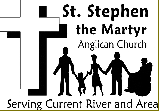Christian Formation
People come to a faith in Jesus in various ways. Some are baptized as a child, nurtured in a Christian family, and cannot remember a time when they did not know Jesus. Others have a conversion experience when they are older. And for others, knowing Jesus is something that slowly dawns as they live their life.
The walk with Jesus over a lifetime, will be part of a person’s maturing. There will be different phases.
Much Christian Formation will take place while attending worship and participating in a church. The rule of life below, lists things that a person ought to consider as part of their personal practise.
Learning to do theology is important. What is learned in Sunday School gets one started. But as one is exposed to life and hard realities, theology ought to develop to address harder questions.
Anglicans when they are doing theology consider scripture, tradition, and reason. A knowledge of the stories and teachings of the Bible is important to learn. The Holy Spirit will cause us to remember stories to teach us. Also, learning the Bible’s history and geography, and literary background of the books of the Bible, provides tools to interpret the stories of the Bible. Tradition includes the creeds and decisions of the ecumenical councils of the church. Reason also includes experience. One knows that you have arrived at good theology when scripture, tradition and reason agree.
Science and religion are compatible. The church was threatened by science and made it difficult for the faithful to trust science. The creation story can be interpreted as a myth, giving the religious truth that God created everything, and it was good. Science addresses how creation evolved, but many questions it cannot answer: How was mass/energy created? How was a soul created? A spiritual person would say that the beauty of creation reflects the creator. Christian theology teaches that creation operates with freedom, yet God can answer prayer.
We can learn on our own, but we also learn from people. People mentor us on our walk with Christ: parents, grandparents, friends, clergy, and people in a church who become friends. The Holy Spirit will teach us and guide us, bringing the right person along at the right time.
A comment on spirituality and religion. Spirituality is a human experience. Our spirituality is our encounter with the spirit world. Christian spirituality is one in which we encounter Jesus. Religion is something that developed to pass on a particular spirituality. In the case of Christian spirituality, Christian religion provides sacraments, theology, a pattern of worship, clergy, and church organization, which is intended to help people encounter Jesus and help people in their walk with Christ, in short to develop Christian spirituality.
Listed below are things that the church offers to help people with their Christian Formation.
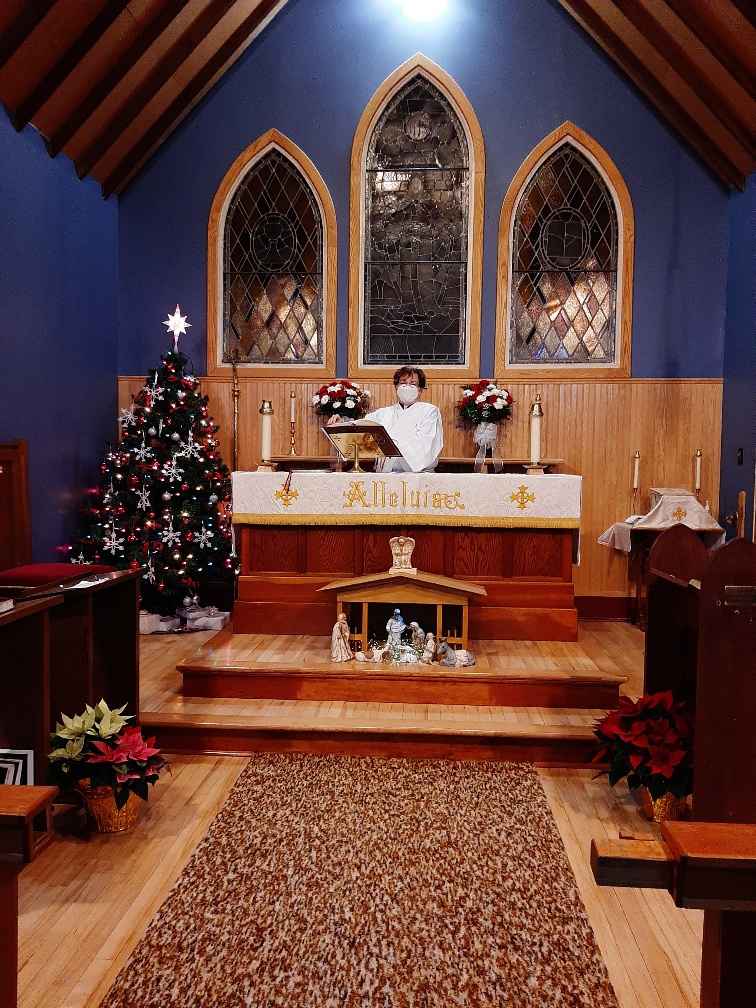
Rule of Life
Book of Common Prayer (BCP) p. 555
Every Christian man or woman should from time to time frame for himself a Rule of Life in accordance with the precepts of the Gospel and the faith and order of the Church; wherein he may consider the following:
- The regularity of their attendance at public worship and especially at the holy Communion.
- The practice of private prayer, Bible-reading, and self-discipline.
- Bringing the teaching and example of Christ into their everyday life.
- The boldness of his spoken witness to their faith in Christ.
- Their personal service to the Church and the community.
- The offering of money according to their means for the support of the work of the Church at home and overseas.
The practice of private prayer and Bible-reading can be done in different ways. Reading a chapter a day from the Bible and praying for those you are concerned about is one way. Our Daily Bread is a resource that many people find meaningful. Saying the office: Morning or Evening Prayer from the Book of Alternative Services is another way.
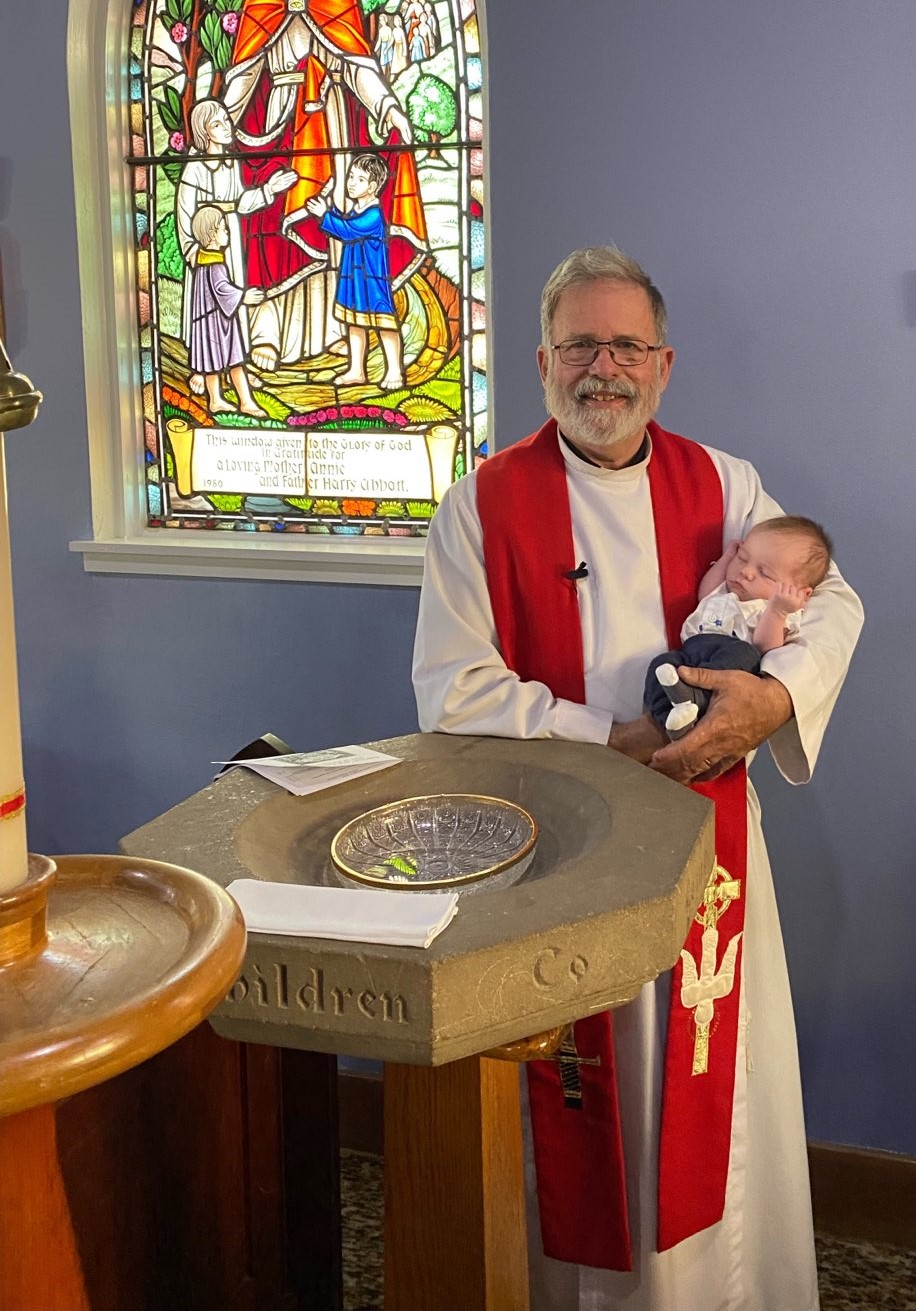
Baptism
Baptism is scheduled by appointment with the clergy, and it takes place during the Sunday Eucharist, unless there is a pastoral reason to do it otherwise. A visit with the clergy to discuss baptism is necessary. Godparents or sponsors must be baptized but need not be Anglican. A fee is not charged for Baptism.
Receiving Communion
Baptism is the sacrament of initiation, and a person who is baptized is a full member of the church and entitled to all the rights and privileges of membership. Anyone who is baptized with water in the name of the Father, Son and Holy Spirit is welcome to receive communion.
A child may receive communion with their parent’s permission. Generally, when a child becomes interested in receiving it, is the time they may start receiving. At this point the child is developing an awareness that this is something special and they want to be part of the experience. The theological understanding maybe I want to be part of God’s family.
A preparation program, Life in the Eucharist, is offered for children who can read; contact the Pastor if interested. Parents and children can work on it at home, or it may be offered to a group of children from time to time. This program may be done after a child is receiving communion, and it serves to deepen the experience of the child.
Confirmation
Confirmation is the laying on of hands by a bishop to receive the Holy Spirit. It is thought of as a completion of catechism as well as a commitment to a ministry. Catechism is a period of learning.
The recommended age for Confirmation is late teens. At an older age people are more likely to maintain a greater commitment to their faith as their ability to think critically is greater and they have more life experience, which makes for a more mature faith commitment. However, children may be confirmed at a younger age in consultation with their parents and the Pastor.
Confirmation preparation is in 2 parts. The 1st part is a completion of a Learning Guide, done as self-study but with assistance. The 2nd part is a 12-week course, that includes preparation of a worship service and a short paper on what you believe and why you believe it.
Contact the Pastor if interested in being confirmed.
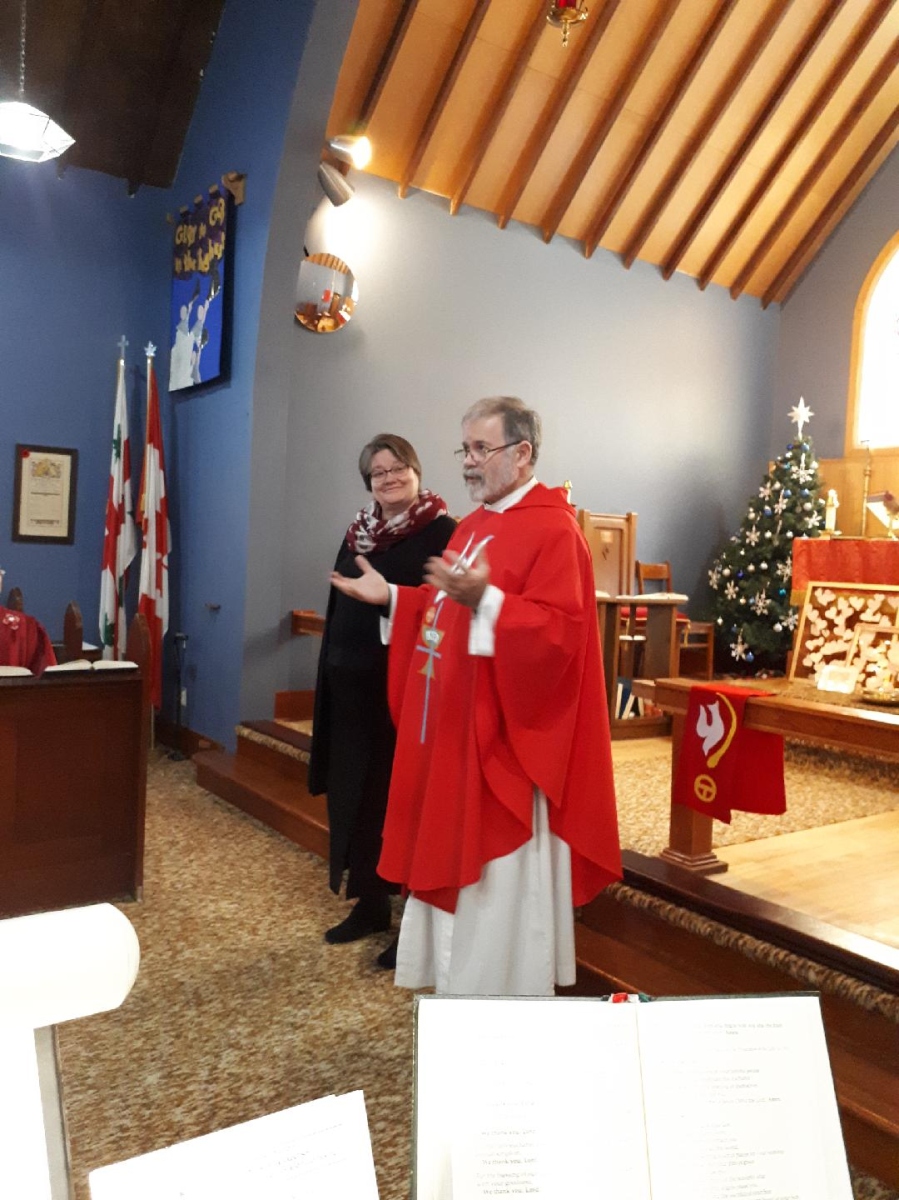
Sunday School
Children may go to Sunday School in the Parish Hall after the children’s hymn and come back to receive communion or a blessing with their families.
Bible stories, crafts and activities are offered, and the curriculum is currently a combination of Godly Play and Lego.
Keeping children safe is important. The screening policy and expectations of teachers are described in Ministry Descriptions.
Ministry Description – Sunday School Co-ordinator
Ministry Description – Sunday School Teacher
Policy C1 – Nursery and Sunday School Policy outlines expectations for teachers/student/care-giver Interactions, discipline, and care-giver concerns. A paper copy is posted in the Parish Hall.
Camp Gitchigomee
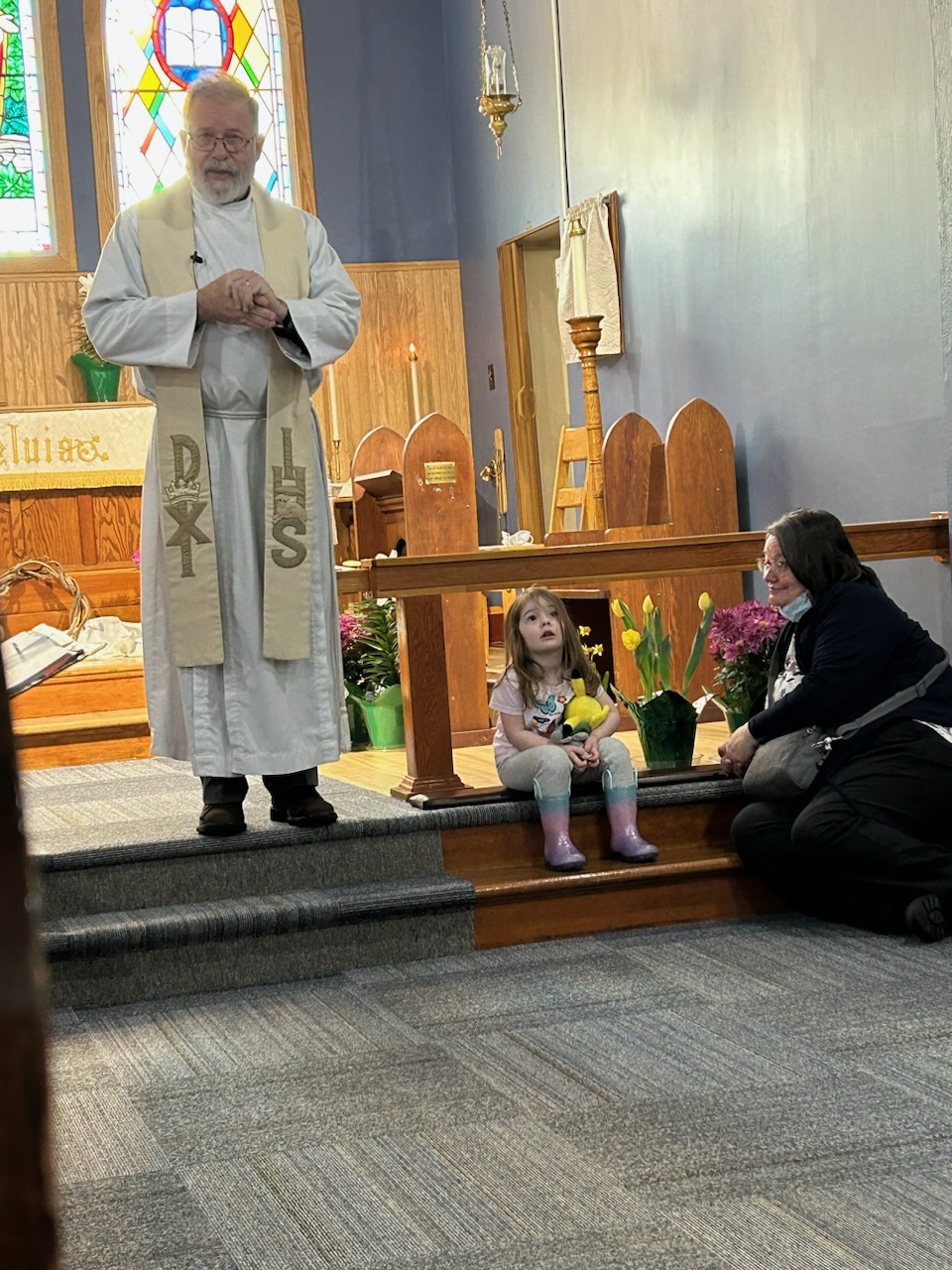
Youth Ministry
Youth are considered full members of the parish and are encouraged to take part according to their interests and availability.
Tuesday Study
The Tuesday Study Group meets 3:00 pm to 4:30 pm on the 2nd, 4th and 5th Tuesdays, from September until June, both in-person in the Parish Hall and on Zoom; see Upcoming Events for the schedule and contact the Pastor for the Zoom link.
We have been watching a video followed by a discussion. Topics are selected by the group and have generally, been about the Bible.
The value of the group is that discussion is driven by questions the members bring. It is a good opportunity for fellowship and to gently grow in faith.
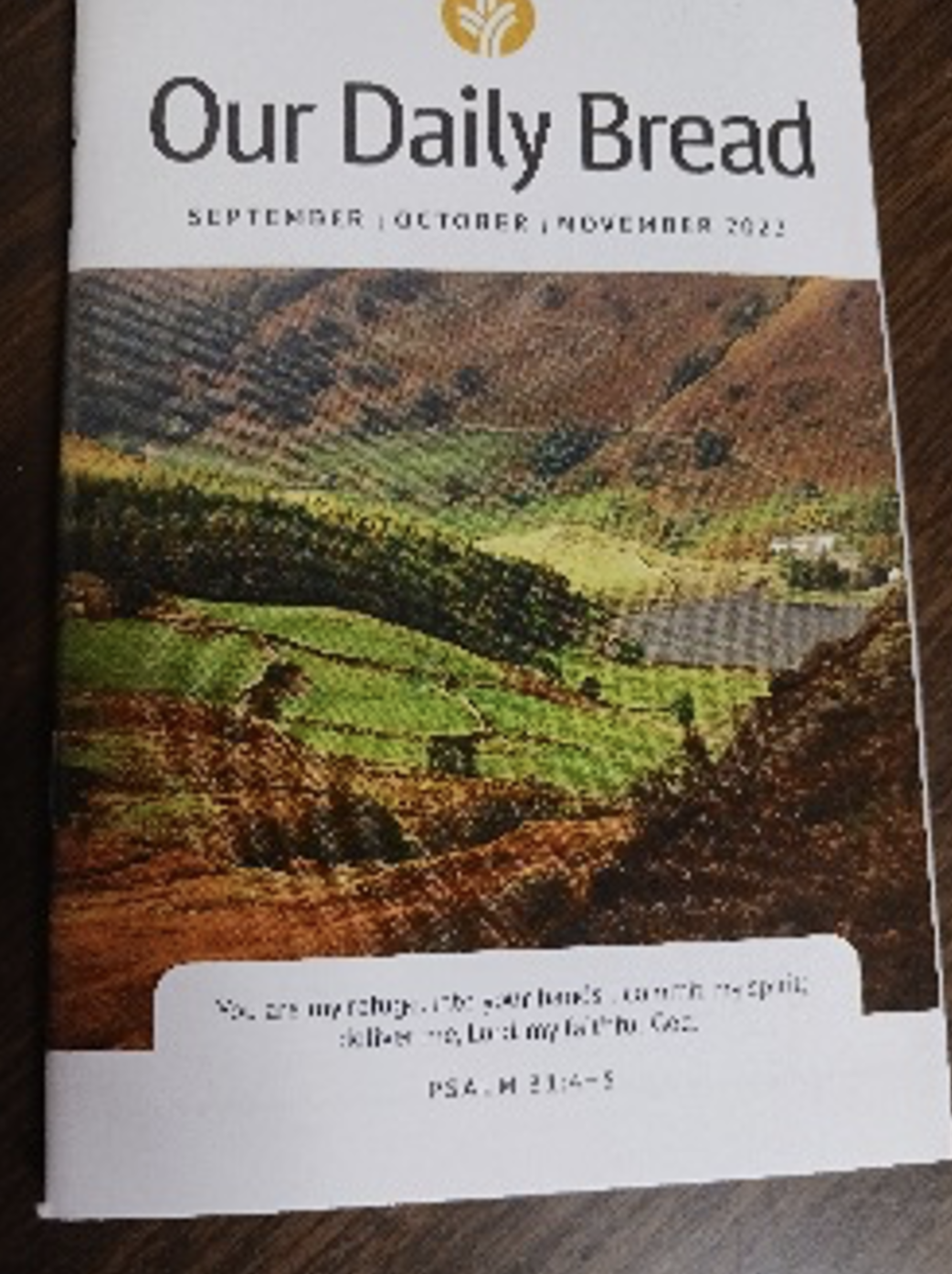
Our Daily Bread
Our Daily Bread is a quarterly publication from Our Daily Bread Ministries Canada that is available for pickup at St. Stephen’s.
A page for each day, with a Bible reading and a reflection.
Quiet Morning
The Quiet Morning is on a Saturday morning from 9:00 am to about 12:15 pm. The intent of the Quiet Morning is to give parishioners exposure to spiritual practises within the Anglican tradition. It starts with Morning Prayer, has short talks, with each talk followed by a time of silence where participants use the time to reflect and concludes with Mid-day Prayer.
It will have a theme such as forgiveness, thanksgiving, stewardship, or the Psalms, and the short talks will reflect on the spiritual practise and theme. Parishioners are welcome to suggest ideas for a theme ahead of the Quiet Morning.
Those attending are encouraged to dress warm, bring their bible and a notebook.
A method of meditating on scripture, Lectio Divina, may be used during the Quiet Morning, Click Here.

